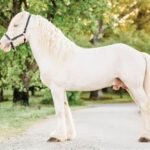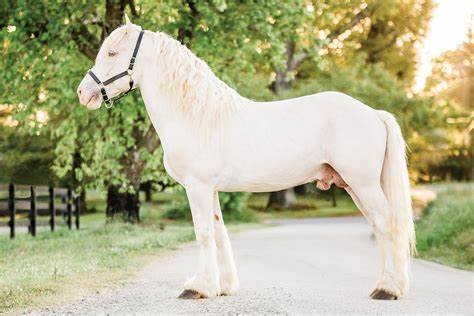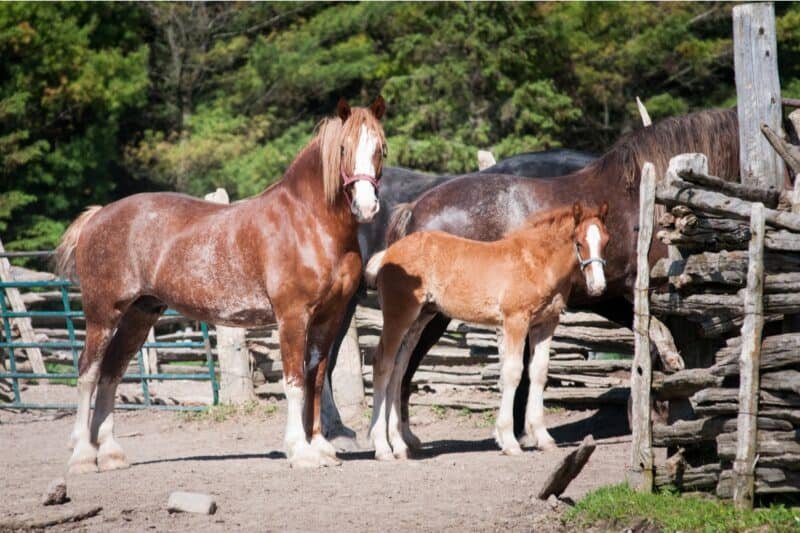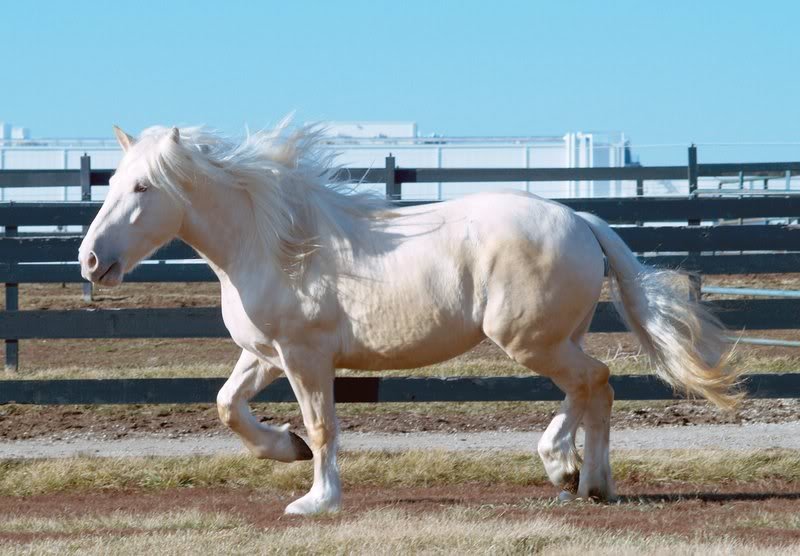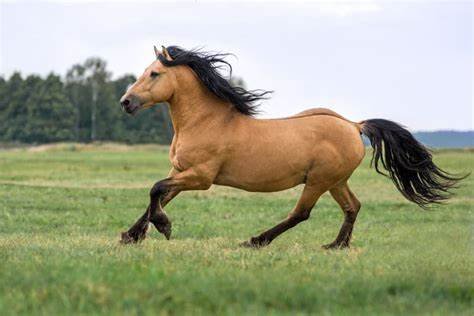Large draft breeds, like Clydesdales, Percherons, and Belgian horses, require a carefully managed diet to maintain their health and stamina. These majestic horses are known for their strength and size, and their nutritional needs are far greater than those of lighter breeds. A proper diet ensures that they have the energy for work, show, and daily activities, while also supporting their overall well-being. This guide will explore the key dietary requirements for large draft breeds, helping owners ensure their horses stay healthy and thrive.
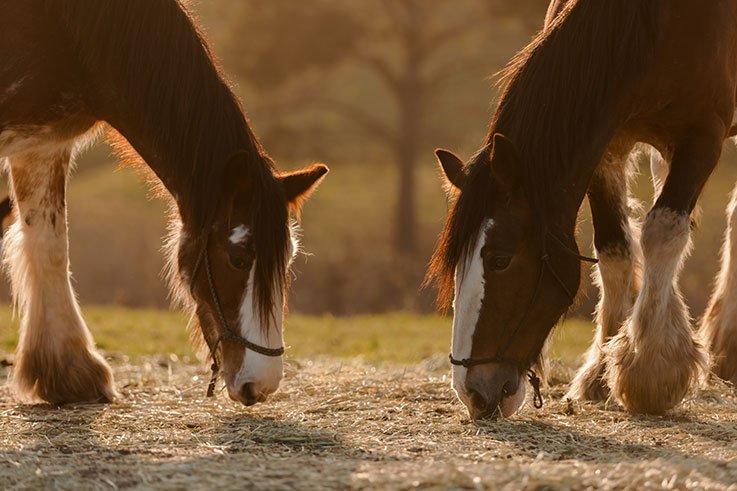
Understanding the Unique Nutritional Needs of Large Draft Breeds
Large draft breeds have a greater mass compared to other horse breeds, and as a result, their nutritional needs are more demanding. These horses require a diet that supports their muscular build, bone structure, and energy output. A balanced mix of forage, grains, and supplements is necessary to fuel their daily activities and maintain their health.
Forage, such as hay and pasture grass, should make up the bulk of their diet. However, it’s important to select the right type of forage that meets their needs. The quality and quantity of hay should be adjusted based on the horse’s workload and size. In addition to forage, the inclusion of grains and other supplements helps provide additional calories and nutrients.
Forage: The Foundation of a Draft Horse’s Diet
Forage is a critical part of any horse’s diet, especially for large draft breeds. High-quality grass hay or alfalfa hay is essential for providing fiber, which supports proper digestion. The amount of hay needed will depend on the horse’s size and activity level. On average, a large draft horse will consume around 1.5 to 2% of its body weight in hay each day.
Alfalfa hay is rich in protein and calcium, which is particularly beneficial for horses that are working or in heavier training. However, it’s important to avoid overfeeding alfalfa if the horse is not engaged in heavy labor, as excessive protein and calcium can lead to health issues. Grass hay, on the other hand, is less rich in protein and calcium and is suitable for horses with lighter activity levels or those in need of weight control.
Grains and Concentrates for Added Energy
While forage is crucial, large draft breeds often require additional energy in the form of grains. Grains such as oats, barley, and corn can provide essential carbohydrates for energy, especially if the horse is working hard. However, grains should be introduced gradually to avoid upsetting the horse’s digestive system.
For horses in light to moderate work, a small amount of grains or concentrates may be enough to meet their energy needs. For those involved in heavy labor or show training, a higher-calorie grain mixture may be necessary. A commercial grain or concentrate formulated for draft horses can provide balanced nutrition and help maintain optimal weight and muscle condition.
Supplements and Vitamins: Supporting Health and Performance
In addition to forage and grains, large draft breeds may benefit from certain supplements to address their specific needs. Common supplements for draft horses include joint support, such as glucosamine and chondroitin, to help maintain healthy joints and prevent injury. Omega-3 fatty acids, found in flaxseed or fish oil, support coat health and reduce inflammation.
Mineral supplements are also important for large draft breeds, particularly those that are working or have specific dietary requirements. These supplements help ensure the horse gets the proper balance of vitamins and minerals, such as calcium, phosphorus, and magnesium, which are essential for strong bones and muscles.
Water and Hydration: Vital for Large Draft Breeds
Adequate hydration is crucial for all horses, but it is especially important for large draft breeds due to their size and workload. A draft horse can drink anywhere from 10 to 20 gallons of water per day, depending on its activity level, diet, and environmental conditions. Always ensure fresh, clean water is available at all times.
In addition to water, electrolyte supplementation can help maintain proper hydration levels, especially after intense work or training sessions. Electrolytes replace salts lost through sweat, helping the horse recover faster and stay hydrated during physical exertion.
Conclusion: Meeting the Dietary Needs of Large Draft Breeds
Meeting the dietary requirements of large draft breeds is essential for their health and performance. These horses require a well-balanced diet that includes high-quality forage, grains, and necessary supplements. Proper nutrition supports their energy levels, muscle mass, and overall well-being. Always consult with a veterinarian or equine nutritionist to create a personalized feeding plan tailored to your horse’s needs, activity level, and health condition. By providing the right nutrition, you ensure that your large draft horse remains strong, healthy, and ready for work or show.





